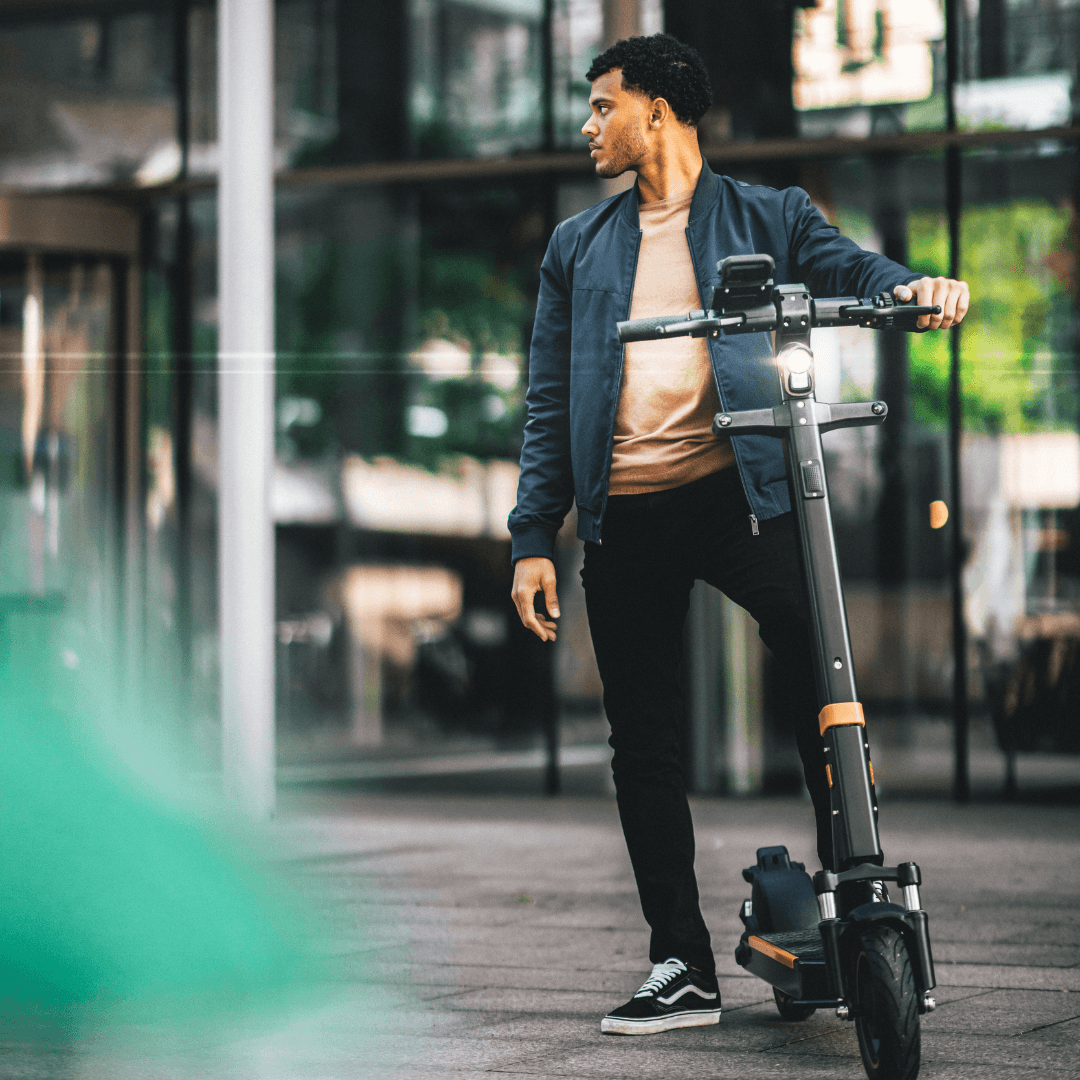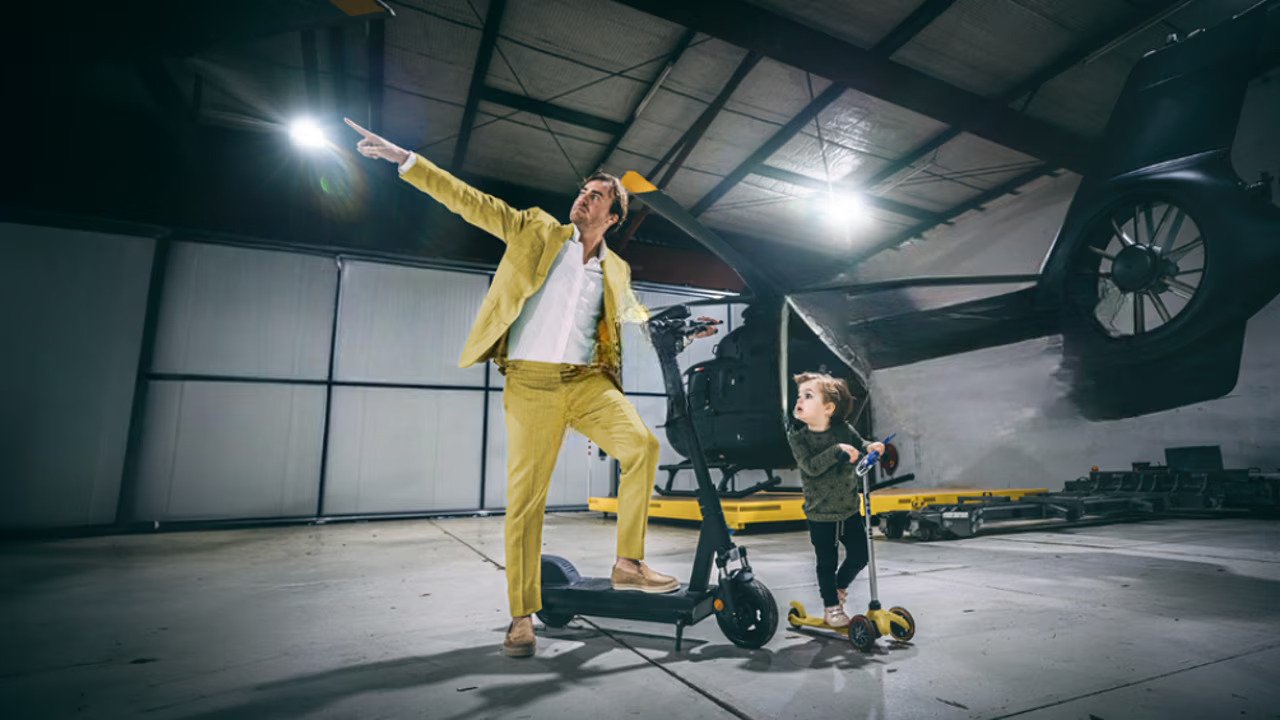Over the past five years, several major micromobility operators have exited European markets or specific cities due to regulatory changes, financial pressures, or strategic pivots. Bird pulled out of Germany, Sweden, and Norway in October 2022. Spin, which Ford later sold to TIER, withdrew from Germany, Spain, and Portugal in early 2022.
Superpedestrian, operator of the LINK brand, shut down globally in late 2023 and officially dissolved its European entity in July 2025. Paris banned shared e-scooters in September 2023, prompting Lime, Dott, and TIER to leave, resulting in the removal of 15,000 e-scooters; Madrid followed suit in October 2024, affecting the same operators; and in Brussels, Lime suspended operations in mid-2025 after a licensing ruling.
But what happens to the fleets afterwards?
It's a problem Max Schalow knows first-hand.
In a fast-changing micromobility landscape shaped by regulation, market exits, and circular economy pressures, Max Schalow stands out as a young entrepreneur who has navigated nearly every part of the value chain — from launching shared mobility services and building legal vehicles, to creating secondary markets and exploring new geographies.
From student to startup founder
Schalow's mobility journey began in 2019 in the Netherlands, a time when e-scooters were banned from use on public roads. He recalled:
"If you rode one, you could get a €400 fine. We wanted to introduce scooter sharing in the Netherlands, but to do this, we needed to obtain a legal scooter first.
So then we had to become a manufacturer. After setting this up for a year, going through the developments and everything, we saw it was going to take a little bit longer than expected."
Never one to sit idle, Schalow seized the chance to launch an e-bike sharing venture, co-founding Bondi with fellow student Chingiskhan Kazakhstan during their first year at the University of Applied Sciences of Arnhem and Nijmegen. Developed during their studies with €135,000 from the Gelderland Valoriseert program, Bondi introduced sustainable e-bike and e-scooter sharing in Dutch cities and grew to a 10-person team.
Schalow modestly recounted:
"It was an opportunity to build up a customer base, get the brand out there, learn how to do the operations and everything else. We ran that for two years and scaled that to eight cities."
However, the duo decided to focus on manufacturing the e-scooter.
Selling off e-scooters was hard — so they built a marketplace
But Schalow discovered it was not easy to sell their existing fleet of electric vehicles:
"We just reached out to everyone. So first, the big companies — because we thought, okay, they probably want vehicles for a good price or like the ones that are close by. But in the end, we started reaching out to all these small operators who have fewer vehicles.
Ultimately we went through a painful process of trying to find buyers.
But a lot of operators don't know who to reach out to."
Enter Fleetser, a curated marketplace for buying and selling (new and used) mobility fleets — primarily e-bikes, e-scooters, and other shared micro-mobility vehicles.
The platform positions itself as a more efficient, transparent way for mobility operators to offload or replenish inventory. The team's experience operating in the shared mobility sector gives them domain credibility in matching buyers and sellers, and they have sold over 6,000+ vehicles to date," offering support such as payment, transport, and software to smooth the process.
It's a fairly simple process: you specify what you want to buy or sell via a form, they connect you to interested parties, and then you arrange pickup/shipment (which they can assist with Circular mobility meets market opportunity "We're literally getting new offers every day. We've got a lot of buyers, shared Schalow.
"We have a big mailing list, and sometimes we can sell them already within two days of the listing going up."
The 2010's were abundant with stories of e-bike graveyards following the demise of operators and fleets.
The 2020s have brought greater awareness of circularity and recycling, but Schalow notes that many fleet companies still scrap unused vehicles for little to no return.
"It's surprising how many operators have hundreds, if not thousands, of vehicles just standing around," Schalow says.
"They don't have time to repair them, they lose their city license, or they run into cash-flow issues.Typical fleet sales range from 200 to 500 vehicles. Before Fleetser, owners would often offload their e-scooters and e-bikes for "peanuts."
Schalow explains, "A lot of the time, we can actually sell them for a much higher price. A guy we just helped today had his fleet sitting around since winter. That's a real shame — and not good for the scooters either. If they're left idle too long, the batteries start to degrade."
Fleetser's buyers fall into two main groups. The first are small operators looking to establish their own fleet affordably, since buying new vehicles is expensive. The second are mid-sized operators with 1,000 to 5,000 vehicles who need to expand for the summer season. Larger operators also purchase, but typically only specific models they already use and maintain.
While Fleetser has sold fleets to the US and South America, there's definitely potential worldwide.
"I spoke to somebody recently in Japan — he has 40,000 vehicles. It could be done everywhere, really," shared Schalow.
Legalising e-scooters in the Netherlands

In July, the next evolution of Schalow's micromobility dream came true with the launch of e-scooter SELANA Alpha on July 1, 2025, which secured RDW approval and became the first fully legal e-scooter in the Netherlands.
Priced at around €1,900, the Alpha is built for urban mobility with a 250 W motor, a top speed of 25 km/h, and a range of up to 60 km on a single charge. Key features include a mechanical drum and regenerative braking, LED lights with turn indicators, 10-inch pneumatic tyres, an NFC keycard unlocking system, and a digital IoT display. SELANA also offers a two-year limited warranty plus insurance and registration support, making road legality seamless.
In the meantime, Fleetser has expanded its reach to South Africa, where the company is exhibiting at Smarter Mobility Africa.
"We have already shipped vehicles to various countries in Africa and are getting more and more requests," said Max Schalow. While the African market differs significantly in terms of infrastructure and mobility needs, he sees "a big opportunity for bringing electric two-wheelers to more cities."
Reflecting on their trip, he added, "It's been an interesting first day at the conference — and we saw some sleepy lions the day we arrived. Can recommend a visit to South Africa."



Would you like to write the first comment?
Login to post comments